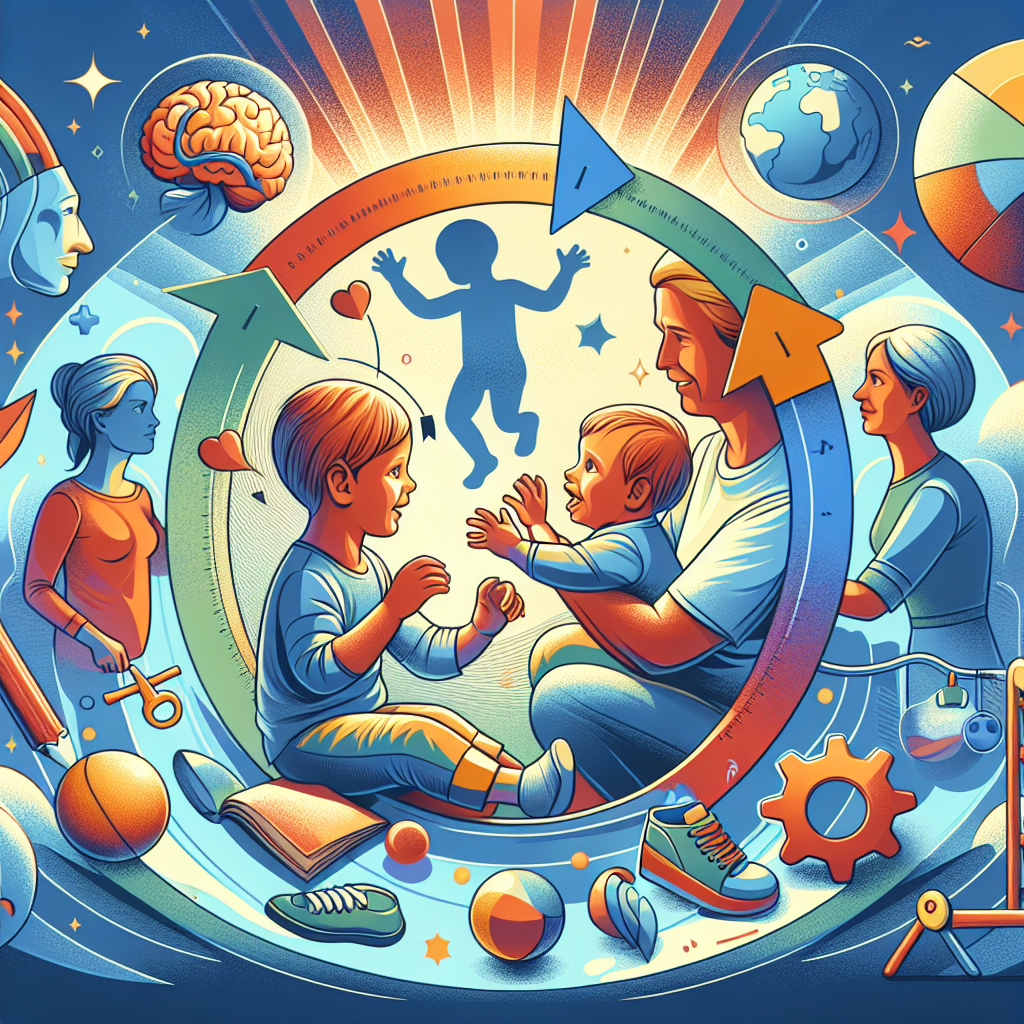Childhood: Everything You Need to Know About This Crucial Period
Childhood is an incredible journey that shapes our entire existence. From the first smiles and steps, to the discovery of language and the world around them, every stage of a child's development is crucial and fascinating. Through this comprehensive guide, we aim to provide you with all the essential information to understand and support the harmonious development of your little ones. Whether you are a parent, grandparent, or educator, this journey together will give you the perspective you need to better understand the magical time of childhood.
Motor Development
Motor development is one of the first and most visible aspects of a child's growth. It includes developing physical skills such as standing, walking or coordinating fine hand movements. From birth, babies begin to develop their musculature and coordination, initially through simple reflexes and then through increasingly complex movements.
The first months of life are critical for muscle and bone development, with the focus being on achieving milestones such as rolling, crawling and sitting independently. Around the age of one, most babies start taking their first steps, a truly exciting time for any parent. It is important to support these stages with games and activities that stimulate movement and by providing a safe environment in which children can explore their abilities.
Language development
Speech is another cornerstone in child development. The first cry, cooing and first words are important milestones that mark the beginning of verbal communication. In the first months of life, babies learn to recognize familiar voices and associate sounds with objects or people. This becomes the basis for learning the language.
As children grow, they begin to form syllables, words, and by the age of two or three, simple sentences. It is essential to talk to children in a clear and consistent manner, to read together and to encourage any attempts to speak, even if at first they are only unarticulated attempts.
Food and Nutrition
Childhood nutrition is vital for healthy development. The first stage, breastfeeding, is recommended exclusively until the age of six months, being considered the best source of nutrition for babies. Starting with the second half of the first year of life, the diet must become more varied, gradually introducing new tastes and textures.
The transition from milk to solid food is a process that must be adjusted according to the needs and preferences of each child. However, it is essential to ensure that the diet of the little ones is balanced and healthy, providing them with all the necessary nutrients for growth and development.
Emotional Education
Emotional education is as important as language learning or motor development. Children learn to manage their emotions by interacting with their parents and significant others in their lives. Validating the child's feelings, encouraging the expression of emotions through words, and setting clear boundaries are essential aspects of emotional education.
It is essential to provide children with a safe and stable environment in which they can express themselves freely. Additionally, by modeling for children how to manage our own emotion, we provide them with a valuable example of how to interact with others in a healthy and respectful way.
Social Interaction
Childhood is when we start learning about social and how to relate to other people. Interactions with extended family, friends and colleagues at nursery or kindergarten play a role in developing children's social skills. It is important to encourage play with other children and participate with them in various group activities.
When children are exposed to diverse social situations, they learn about cooperation, sharing, respect and conflict resolution. By ensuring they have regular opportunities to interact with those around them, we help them develop strong social skills that will benefit them throughout their lives.
Conclusion
Childhood is a vibrant and decisive stage in the development of every individual. By understanding and supporting each phase of their motor, language, emotional, nutritional and social development, we as parents and educators can make a significant contribution to their overall well-being. The best moments come from watching their progress day by day, and every small victory is a huge step for their future.
Thank you for going through this guide to child development and we hope you find the information provided helpful in your parenting journey. For more information, tips and resources on raising children, we invite you to visit our dedicated section of the website or subscribe to our newsletter. together we can make a difference in our children's world!














































































































































